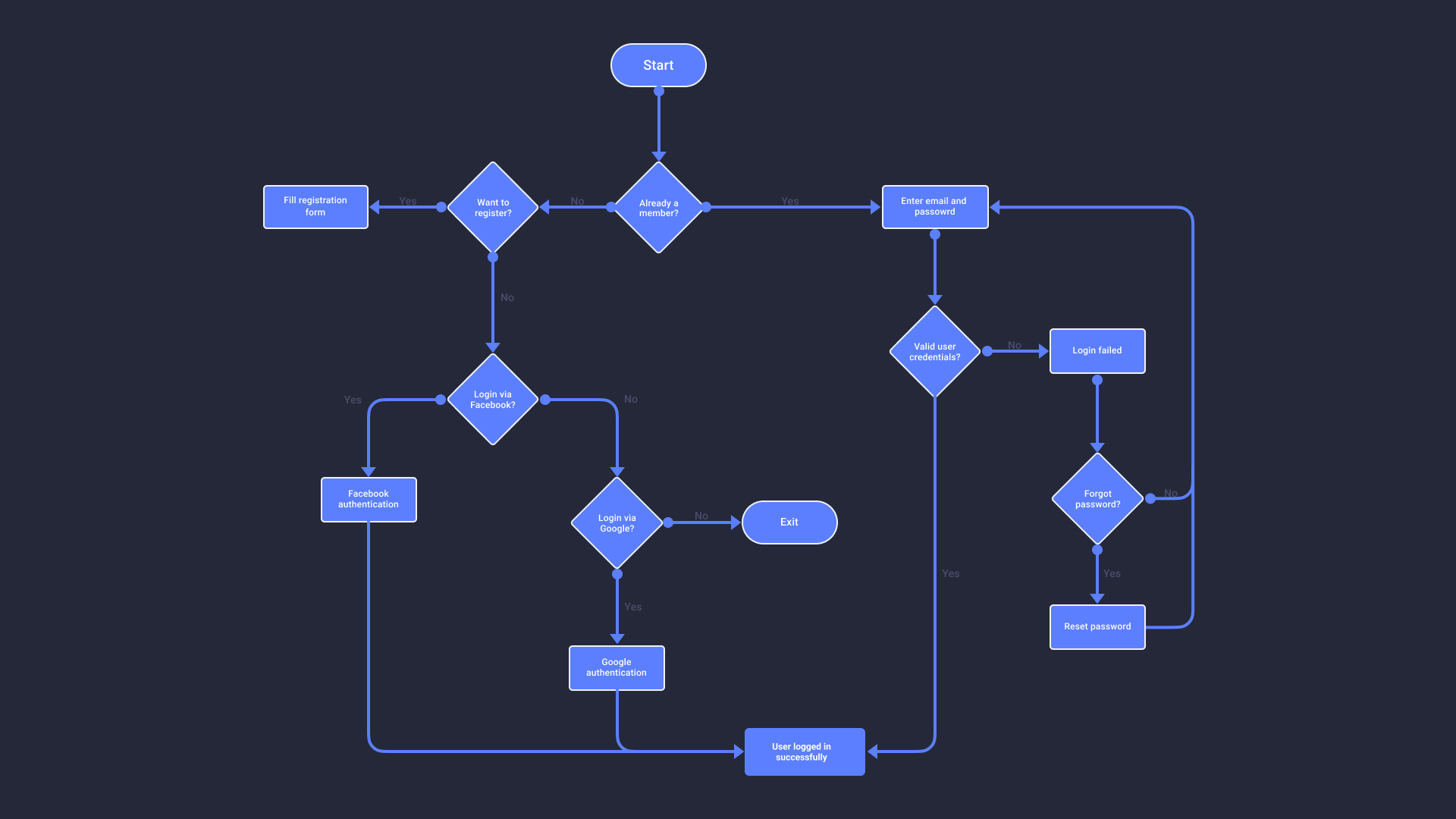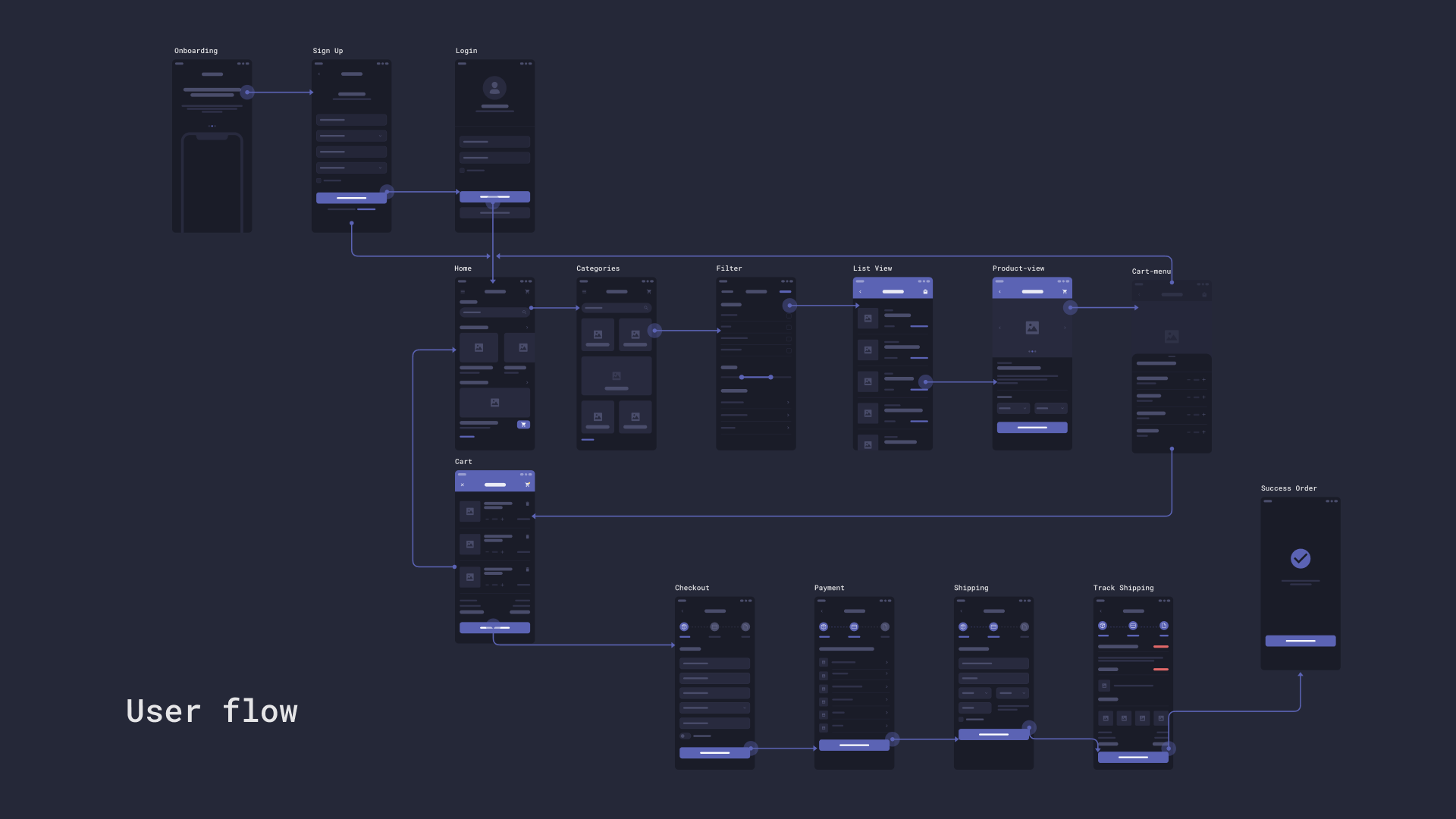








Technical specifications and UX prototyping
The beginning of cooperation with any, especially a new, partner inevitably causes some anxiety. Any entrepreneur strives to minimize risks and carefully spell out all the details in the contract, since correcting problems after development is completed is most often very expensive. Therefore, we will figure out how to draw up a high-quality technical specification in order to be guaranteed to receive a product that fully meets your expectations and business goals.
What is a technical specification in software development
A technical specification is a document used in project management. It contains detailed information about the project: a list of works and their descriptions, schedule, deadlines, project budget and other important information that determines the scope and goals of the final product assembly.
The terms of reference for development are agreed upon with the entrepreneur, who is the customer of the software and the outsourcing company, even before the start of any technical work on the project. Thus, already at the start, the parties clearly understand how the development will proceed and what the final result will be, which eliminates misunderstandings and risks.
The role of technical specifications in the software development process
Many people perceive the technical specification as a dry, or even boring, technical document, but in practice it is a critical component of any project related to the development of digital solutions. Since the terms of reference define the exact goals and expectations of the project, without it it would be impossible to understand whether the development is going according to plan or whether there has been a deviation at some stage.
The technical specification is also important because it contains the agreed scope of work and the schedule for their implementation. This eliminates the possibility of misunderstandings between the customer and the contractor, makes it possible to flexibly manage resources and calculate the most accurate deadlines for completing the development.
How to write technical specifications for software development
Now that we've understood how a technical specification paves the way for software success and why it is an integral part of the development of any project, let's dive into the details and discuss how the process of creating such a document works.
Where to start creating technical specifications for software?
To write a high-quality technical specification, experts need to accurately and unambiguously describe the work that needs to be performed by the contractor, indicate the goals, objectives and results of the project, and add enough detail that will give a clear idea of the software being created, but will not overload the document. That is, the technical specification must be technically competent and succinct, but at the same time easy to understand and understandable for the customer.
Of course, today on the Internet you can find many examples of developing technical specifications and templates, but using them to draw up technical specifications for a large and complex project is inappropriate. Each product is individual, so there is no point in putting it into some kind of framework already at the stage of drawing up the technical specification.
What should the technical specifications include?
According to our technology, the technical specification must contain mockups of software interfaces, a complete description of the logic of the functionality and methods of communication with the API. At the same time, the terms of reference may include other important information that helps improve the efficiency of the development team and improves communication between the customer and contractors. It could be:
- Time frame. A deadline helps developers understand exactly what tasks they must complete and within what time frame to complete the project on time. In addition, the technical specification must contain provisions on intermediate stages that serve as milestones and help track the progress of software creation.
- Technologies. A stack of technologies on which to build the project development so that it fully satisfies the customer’s needs. For example, these could be specific programming languages, frameworks, libraries and databases.
- Resource requirements. Requirements for resources that the contractor must have for the successful implementation of the planned software. In particular, this may include the required number of developers with a certain experience and technical level - middle/senior, availability of equipment, own servers, etc.
- Risks and limitations. When drawing up technical specifications, it is important to take into account and calculate any risks that in one way or another may affect the development of the project. For example, these may be time, resource or budget constraints. The fewer unforeseen circumstances that arise during the implementation process, the higher the chance of bringing a successful product to the market.
- Communication plan. Even before development begins, the customer and the contractor must clearly understand how they will interact, who is responsible for communication on each side, how often meetings/calls will be held, through which messengers and in what format. It is also worth clarifying your communication style to avoid unfamiliar slang and misunderstandings.
- Acceptance Criteria. The terms of reference must include the work acceptance criteria. This guarantees the customer that the final product will fully meet his expectations. It is important that the criteria established are clear and measurable. For example, this could be the software's ability to process a certain number of requests per minute.
- Reporting format. Reporting requirements are an integral part of the technical specification. The customer must have a clear idea of exactly how the developers will report to him, what will be included in the reports and how often they should be. The frequency may vary depending on the features and complexity of the software, for example weekly or monthly.
- Harmonization of standards. Following standards during development makes it much easier to support and further develop the product. Therefore, it is necessary to agree on compliance with documentation, code and testing standards already at the stage of creating the technical specifications.
- Budget. Discussing financial details before the start of development helps the contracting team to correctly calculate resources taking into account the client's financial constraints. This minimizes the risk that the project will not come within budget.
Main stages of development of technical specifications
There is no universal approach to writing technical specifications, since each team uses different methodologies for drawing up technical specifications, and the customer’s requirements are always unique and depend on the individual characteristics of his business. In our company, tech spec is usually created as follows:
- Studying the client's requirements and software goals.
- Creation of WBS - hierarchical project architecture.
- Planning and description of functional logic.
- Development of an interactive software prototype.
- Record video explanations for developers and clients for each module to avoid misunderstandings.
- Calculation of financial costs for development.
- Identification of possible project risks.
- Creating a communications plan.
- Coordination of technical specifications with the customer and contractor.
Ultimately, the statement of work should be concise and easy to understand, but at the same time specific and precise, as it provides guidance to the development team. Flexibility is also important for the technical specification so that if requirements change or new ideas arise, the necessary changes can be easily made to it without disrupting the progress of the entire project.
Possible errors when creating technical specifications
When writing technical specifications for software development, mistakes may occur that should be avoided. Let's look at the most common of them:
- Lack of clear project goals . If an entrepreneur does not have a clear vision of what goals he wants to achieve with the software he is developing, it becomes quite difficult to determine realistic expectations and the amount of work required to achieve them. To avoid this problem, we recommend setting goals using a SMART approach. That is, such goals should be specific, measurable, achievable, relevant and time-bound.
- Problems with specifying goals . It is very important to maintain a balance - the project goals should not be too specific so as not to limit the creativity of the developers, but also should not be vague, otherwise the team will not understand what exactly you want.
- Lack of accounting for changes . During development, changes are almost inevitably made to the project - new functions, integrations, etc. are added. Therefore, a quality technical specification must necessarily include a change clause that describes exactly how any adjustments will be managed and paid for.
- Prioritize cost over quality . Saving budget on software development looks tempting, but very often this benefit is false. Along with the deterioration of software quality, its value for business and end users also decreases, which can entail costs for the brand, including reputational ones. In most cases, a defective product can be corrected, but it will cost much more.
Advantages of developing technical specifications at AVADA MEDIA
The terms of reference are the foundational document that defines how your project will be developed, as well as the quality, safety and performance of the final result. Our main goal in drawing up technical specifications is to correctly describe your ideas in technical documentation, increase the efficiency of the development process and ensure complete mutual understanding between you and the outsourced team of specialists.
Are you planning to develop software? Contact us and AVADA MEDIA experts will help you create a high-quality technical specification that fully meets the needs and objectives of your business.
FAQ
-
Why is it worth ordering the development of technical specifications from you? What are you offering?
We believe that technical requirements for hundreds of pages have long lost their effectiveness, so we use a different approach. Our technical specification are based on an interactive prototype of your software, which allows you to clearly understand where and what functionality will be placed, as well as what tasks it will perform. Plus, we additionally record explanatory videos for the customer and the performer in order to completely avoid ambiguous interpretations.
-
Who is responsible for writing technical specifications?
It all depends on the size and complexity of the software. The drafting of specifications for small software is usually carried out by a project manager or project team. For large digital solutions, it can be written by a team of experts or a technical specification development manager. However, regardless of who is creating the technical specification, it is important that all the requirements for the product are clearly described in it, and that the parties clearly understand what it includes even before development begins.
-
Is development of technical specifications necessary for all projects?
If you want to get a quality product, you definitely cannot do without technical specifications. There are other software development methodologies, for example by creating an MVP, but this approach is associated with increased risks and is suitable for relatively small projects.
-
Who should control the implementation of technical specifications during software development?
The terms of reference are a contract between the customer and the contractor, so it is very important to determine who exactly will be responsible for completing all assigned tasks. Typically this responsibility falls on the project manager.










